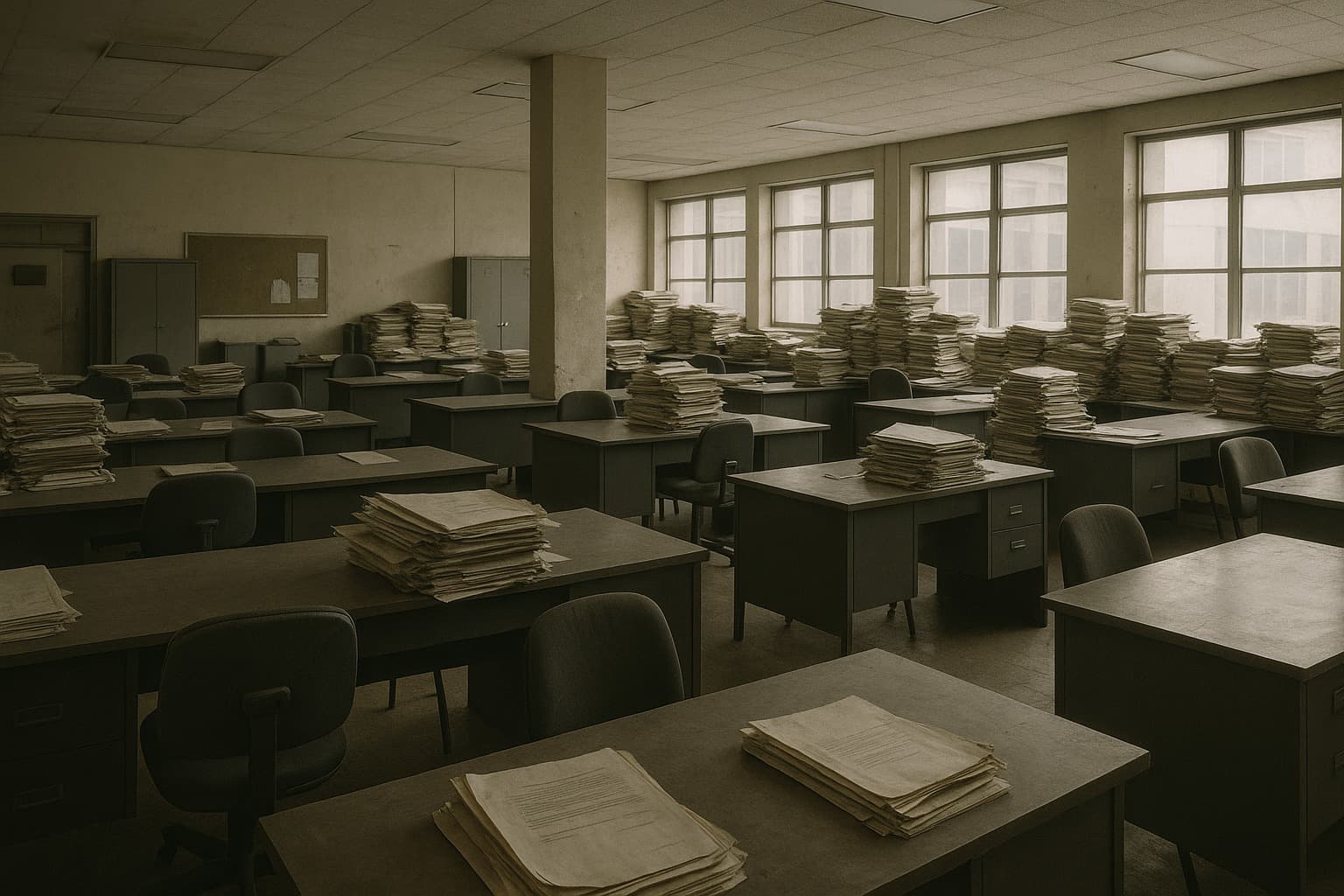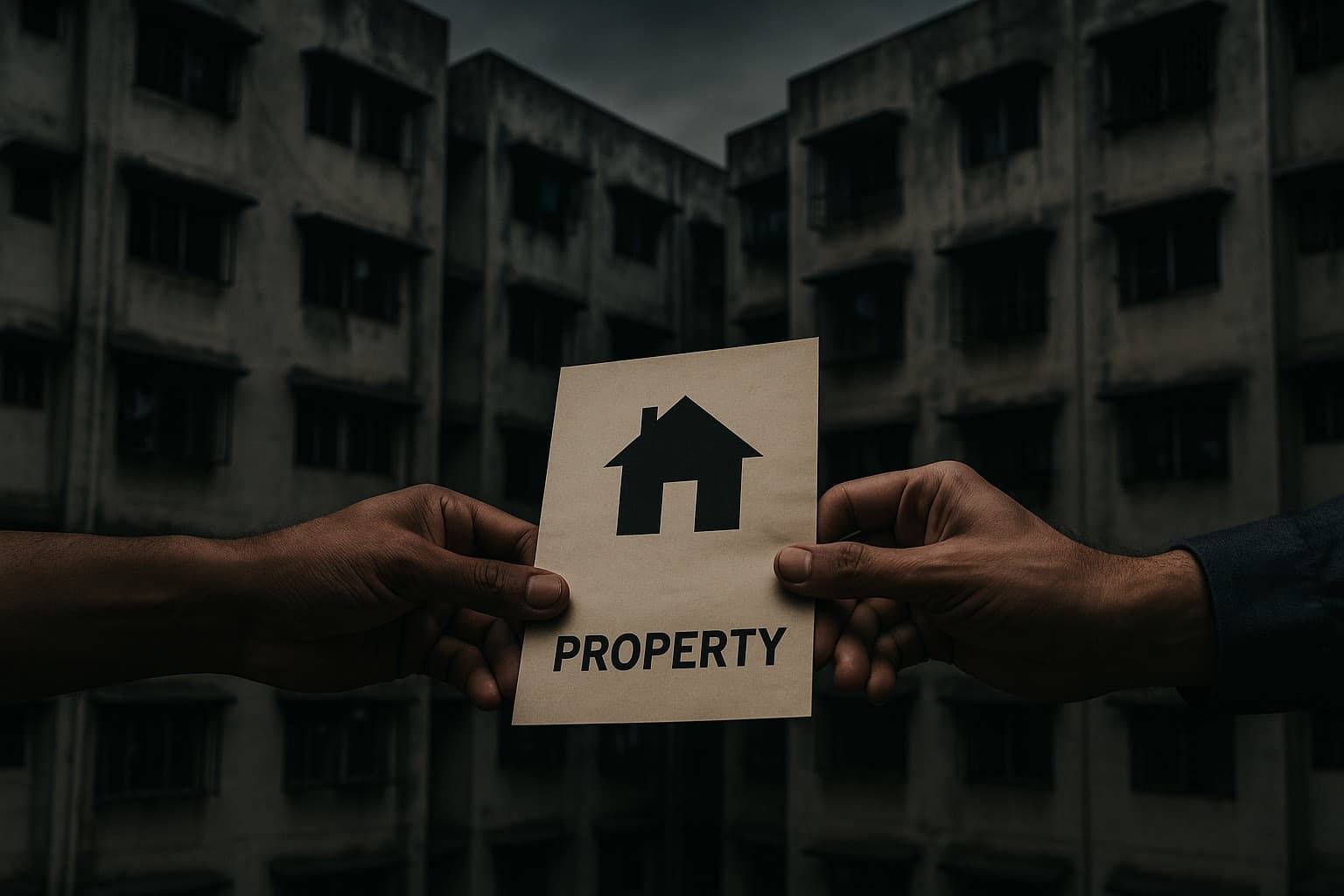
Bombay High Court Intervenes: Directs Maharashtra to Fix SRA Staffing and Stop Illegal Property Transfers
Summary
The Bombay High Court intervened, directing Maharashtra to address SRA staffing shortages and illegal property transfers. Lakhs of slum dwellers await promised homes, and the court emphasizes housing as a constitutional right, not charity, demanding immediate action and accountability.
For most people in Mumbai, a home is not just an address — it is dignity, safety, and the hope of a better tomorrow. But for lakhs of families living in slums across the city, “home” still means a leaking tin roof, a single dim bulb, and walls so thin that privacy is impossible.
For them, the Slum Rehabilitation Authority (SRA) is not just a government body. It is a promise. A promise that someday, they will leave behind their cramped, unsafe shanties and step into a proper flat — four walls, a door that locks, and maybe even a balcony where their children can play.
But dreams have a way of getting lost in paperwork, delays, and corruption. And when the very authority meant to deliver dignity is crippled by understaffing and illegal property transfers, hope turns into despair.
This is exactly why the Bombay High Court recently intervened, pulling up the Maharashtra government and directing it to fix staffing shortages in the SRA and curb rampant illegal transfers of SRA flats.
Why the Court Had to Step In
The court’s order wasn’t just about “systems” and “rules.” It was about people.
SRA Staffing Shortages
The Slum Rehabilitation Authority is drowning in files. Thousands of projects are pending, lakhs of families are waiting, and yet — the staff is barely enough to handle even half the workload. Without officers to process documents, verify beneficiaries, or monitor builders, projects crawl at a snail’s pace.
And every day of delay means another family continues to live in a 10x10 room with no sanitation, no safety, and no certainty about the future.
Illegal Property Transfers
The second issue is even more painful. Under SRA rules, a slum dweller who receives a free rehabilitation flat cannot sell or transfer it for 10 years. This rule exists so families can finally have a stable home, not just cash in and go back to the slums.
But on the ground, reality is harsh. Flats are illegally transferred to investors, sold under the table, or grabbed by middlemen. The poor — already vulnerable — get cheated out of what was rightfully theirs.
When the High Court saw how widespread this was, it had to act.
The Human Cost of Delay
To understand why this order matters, you need to step inside a slum household.
Picture a mother in Dharavi. She works long shifts in a garment unit, comes home exhausted, and still has to cook dinner in a cramped corner of her one-room home. Every monsoon, rainwater seeps through the roof, and she spends nights trying to protect her children from getting soaked.

She was promised a proper flat years ago under SRA. She even remembers signing forms and attending builder meetings. But today, the building site near her slum stands half-finished, surrounded by rusted scaffolding.
Every time she asks, she hears the same excuse: “The file is stuck at SRA.”
Now imagine her frustration when she discovers that the flat meant for someone she knows was already sold illegally to a stranger.
This isn’t just inefficiency. This is betrayal.
What the Bombay High Court Said
The Bombay HC directives were clear:
Fix the staffing issue immediately. An authority dealing with millions of lives cannot run on empty chairs.
Stop illegal transfers of SRA flats. The 10-year lock-in rule must mean something. Violators must face consequences.
Hold the state accountable. The court reminded the Maharashtra government that slum rehabilitation is not charity. It is a constitutional duty — giving citizens a dignified right to shelter.
Why Staffing Matters So Much
On paper, “staff shortage” sounds like a small administrative problem. But on the ground, it is the reason children keep studying in dark rooms and families wait endlessly for a safe roof.
Fewer officers mean files pile up for years.
Builders exploit the delays, leaving projects half-done.
Slum dwellers lose faith, and in desperation, some fall prey to illegal deals that rob them of their rights.
The shortage is not just about numbers. It is about broken trust.
Why Illegal Transfers Break Hearts
The rule against selling flats for 10 years was created with compassion. It was meant to protect families from immediate exploitation.
But exploitation still happens. A poor family, desperate for money, is pressured into “selling” its future flat. A middleman pays them a fraction of what the flat is worth. The family goes back to a slum. The middleman flips the flat for profit.
The dream of dignity dies quietly in the chaos of paperwork and greed.
This is why the High Court’s order is so crucial — it seeks to restore fairness to a system that has become easy to manipulate.
The Emotional Ripple Effect
When redevelopment fails, the impact is not just financial. It is deeply emotional.
For children: They grow up in environments where basic privacy and safety are missing. Their dreams shrink to fit within four crumbling walls.
For women: Cooking, cleaning, and raising children in unsafe conditions becomes a lifelong struggle. Safety remains a daily fear.

For the elderly: Many die waiting for the homes they were promised. Their entire life’s dream — to die in dignity — remains unfulfilled.
These aren’t just “stakeholders in projects.” These are human beings. And every delay chips away at their hope.
What Happens Next?
The Maharashtra government now has no choice but to act. The High Court has made it clear that:
More staff must be appointed. Without manpower, nothing moves.
Illegal transfers must be punished. Otherwise, rules mean nothing.
Transparency must improve. Beneficiary lists should be clear, updates should be public, and slum dwellers should not be kept in the dark.
If these steps are actually taken, Mumbai’s most vulnerable could finally see progress.
Final Thoughts
The Bombay High Court’s order is not just a legal directive. It is a lifeline.
It reminds us that redevelopment is not about builders making profits or politicians making speeches. It is about a mother in Dharavi who dreams of a kitchen with space to move. It is about a father in Kurla who wants his children to sleep without fear of the roof collapsing. It is about dignity.
Mumbai is a city of skyscrapers and sea views. But true progress will only come when those who built this city with their sweat — the workers, the migrants, the families in slums — also get to live in safe, legal homes.
The High Court has done its part by pulling up the state. Now, it is up to the government to act. Because a home is not a luxury. It is a basic human right. And no one should have to beg for it.
100-Word Summary
The Bombay High Court has ordered the Maharashtra government to urgently resolve the staffing shortage in the Slum Rehabilitation Authority (SRA) and stop rampant illegal property transfers in redevelopment projects. With understaffed offices and fraudulent flat sales, lakhs of slum dwellers remain trapped in unsafe homes, waiting endlessly for promised rehabilitation. The court emphasized that housing is not charity but a constitutional duty, and strict action is needed to restore fairness. For Mumbai’s poor, this order is more than paperwork — it is a rare glimmer of hope that their long wait for dignity and security may finally end.
Video will be embedded from: https://youtu.be/jrOEzwH_q_A